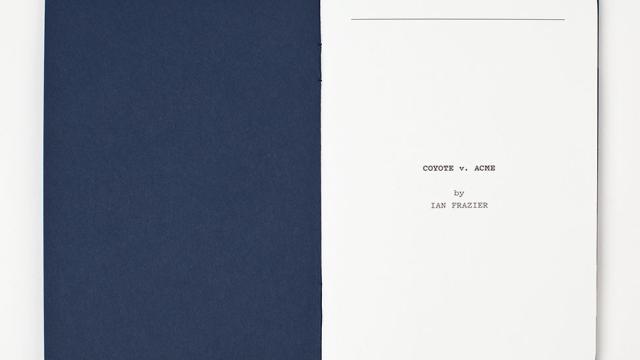Back in 1990, in an awesome piece for The New Yorker, author Ian Frazier told the — shall we say — little-known story of Wile E. Coyote’s endless legal battles with the Acme Company. Now, the tale of Coyote’s legal tribulations, suing Acme for grievous personal injury and catastrophic product malfunction, has been designed and republished by Michael Bierut of Pentagram, featuring original diagrams by Daniel Weil.
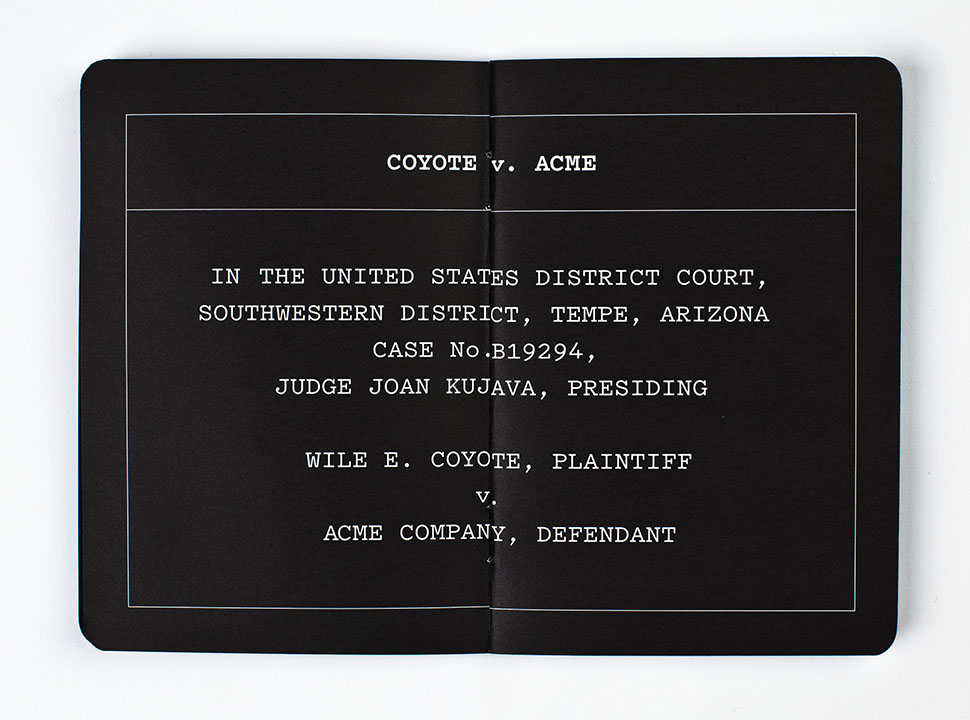
Frazier’s premise is that Coyote has finally had enough of the injury, trauma, and humiliation inflicted upon him by Acme products — products that never seem to work as intended and that always, in the end, turn against the person (or, his case, animal) using them. So he has lawyered up and taken his case to court.
“My client,” we read on the opening page of the ensuing fictional legal argument, “Mr. Wile E. Coyote, a resident of Arizona and contiguous states, does hereby bring suit for damages against the Acme Company, manufacturer and retail distributor of assorted merchandise, incorporated in Delaware and doing business in every state, district, and territory. Mr. Coyote seeks compensation for personal injuries, loss of business income, and mental suffering caused as a direct result of the actions and/or gross negligence of said company, under Title 15 of the United States Code, Chapter 47, section 2072, subsection (a), relating to product liability.”
The dry legalese of Frazier’s text sets a perfect tone for this — and it is maintained consistently, going through “improper cautionary labelling,” for example, to a case of “sudden and extreme malfunction” in the case of Coyote’s spring-powered shoes.
However, if imaginary legal arguments aren’t quite your bag, Weil’s helpful diagrams of the offending products add an awesome level of investigative detail to the new publication.

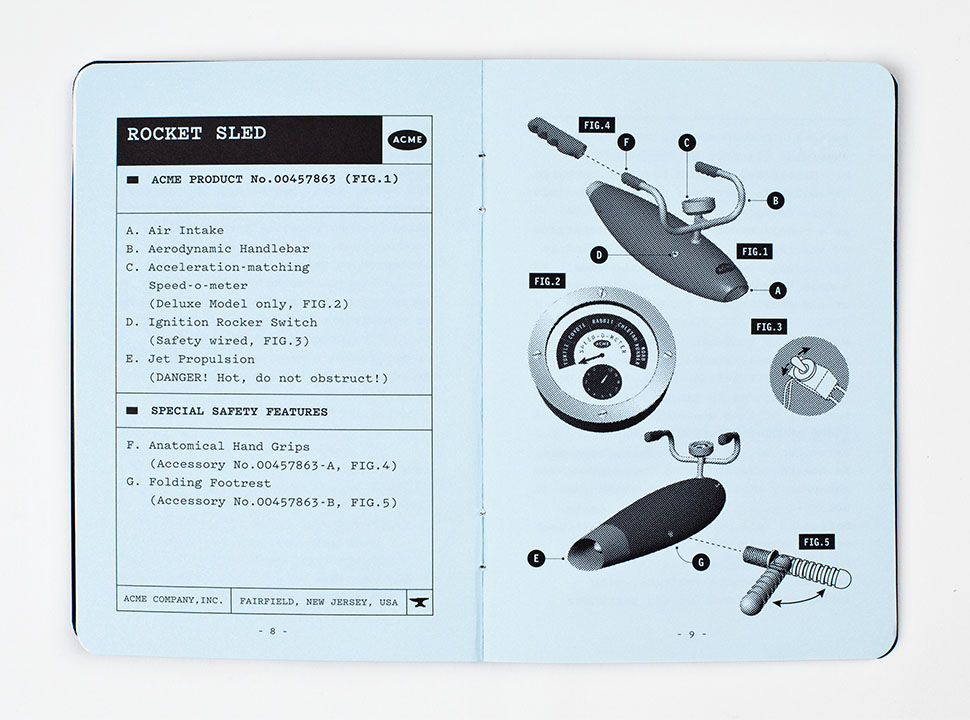
Coyote ultimately asks for $US17 million in punitive damages for the wounds inflicted upon him by Acme products.
We don’t know if his case is successful.
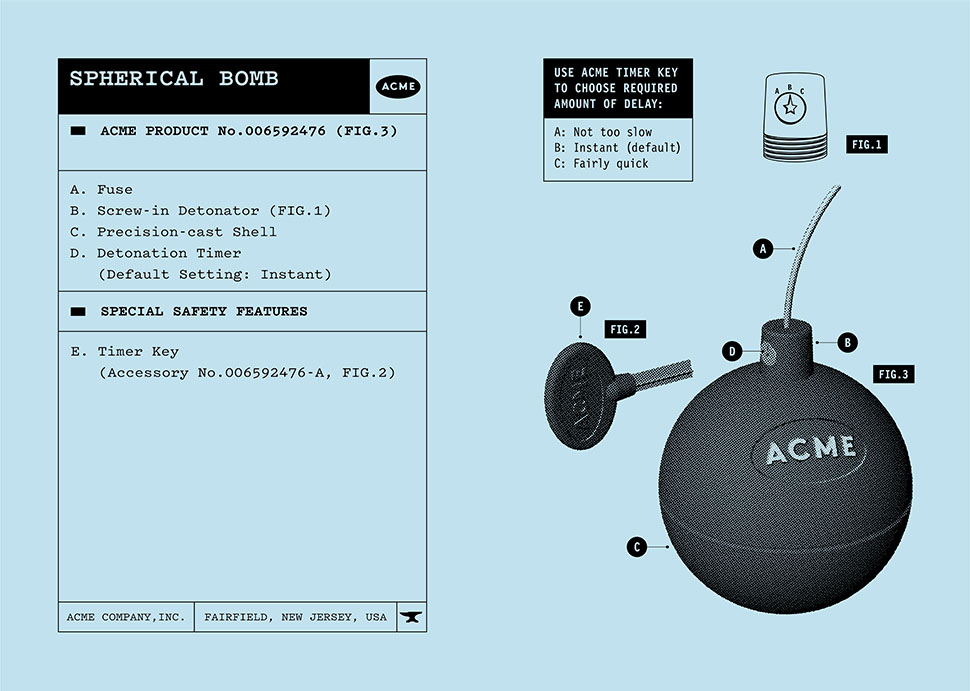
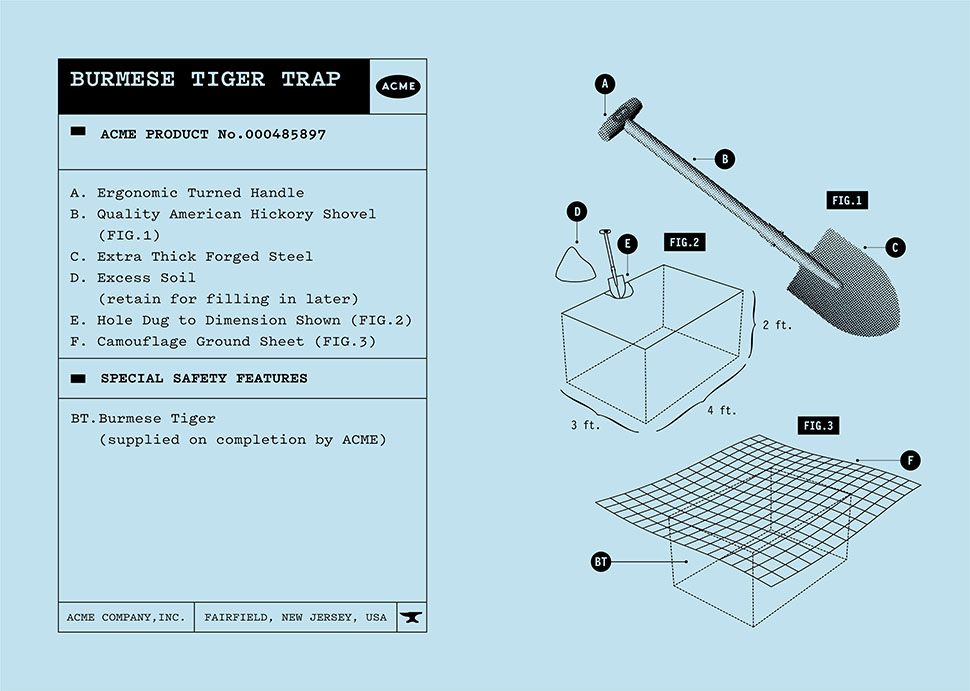
The pamphlet is quite short, but it’s worth a look and a few more images can be seen on Pentagram’s website.
However, I’m reminded of at least two things here that seem a brief mention.
One is a hilarious Metafilter thread from 2009 about all the “crimes committed by Ferris Bueller during his Day off,” a similarly legalistic approach to a work of popular fiction. The first example? “Well, just to get the ball rolling,” a commenter writes. “At the restaurant, on the phone with the Maitre D’ he says, ‘This is Sgt. Peterson, Chicago Police.’ Violation of 720 ILCS 5/32-5.1: False Personation of a Peace Officer. A person who knowingly and falsely represents himself or herself to be a peace officer commits a Class 4 felony.”
This is just one example from the, as you can imagine, extraordinary amount of crime and mayhem committed by Bueller and his accomplices over the course of the film — including, of course, the film’s penultimate scene where we witness an unforgettable case of “odometer fraud.”
This whole approach, in fact — both Coyote v. Acme and all the crimes committed by Ferris Bueller & Co. — seems to offer an eccentric but highly instructive way for law students to analyse fiction, as one could easily imagine an entire class dedicated to watching popular films or reading classic literature and making a note of every possible crime that’s being committed. In a way, this is also the premise of the idea that we all commit at least three felonies a day — whether we know it or not — only, here, it is applied to fictional characters.
What are the unnoticed crimes, potential lawsuits, product malfunctions, and possible recalls hiding in plain sight in the fiction or film we read and see everyday?
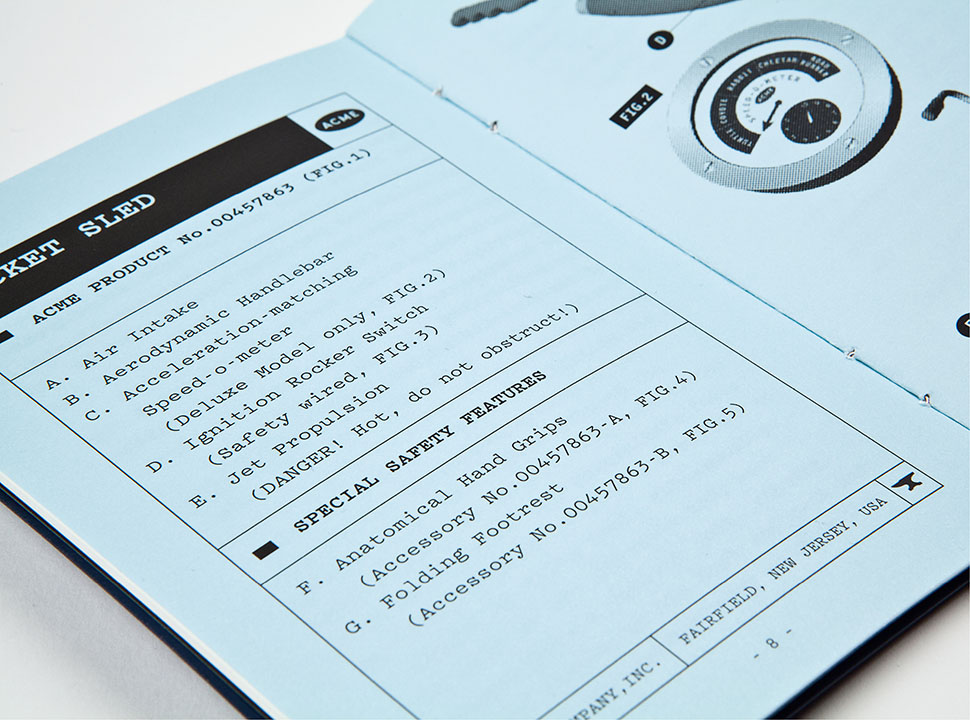
In any case, the second thing that seemed worth mentioning here is admittedly a bit off-topic, and I don’t even remember which book it is where I saw this, but there is a great description by Slovenian political philosopher Slavoj Zizek about what would constitute a “postmodern” James Bond film — that is, a James Bond film that get rids of the very idea of a plot distinguishable from everyday life and instead focuses on the mundanity of 007’s personal life.
In such a film, Zizek writes, assuming I’ve remembered this correctly, James Bond doesn’t go on any missions. He is home from the field, instead, and the most recent Bond girl has moved in with him. They get breakfast, perhaps; they go to a friend’s house for drinks, dressing up for a cocktail party; maybe he goes to the supermarket; they even walk out to see a film at one point. But he’s bored; the Bond girl begins to grate on him. She wants more, she says; he can’t give more, he replies. He makes a martini one night while she’s out and he watches Top Gear. I’m James F**king Bond, he thinks, not a house husband, and he is raging inside; he is not some everyman stuck at home alone, cooking vegetables. Why can’t this woman realise that? Why can’t anyone realise that? Bond — James Bond — walks around alone and maybe kills some time by buying something, an impulse purchase. Maybe it’s a new tie, but then he never wears it. He refills his Oyster card and gets caught in a passing conversation with an American tourist. London is getting cold this time of year and the wind is picking up. This postmodern Bond of home cooking and laundry longs for a future mission — any mission — a new assignment of any kind. Eventually, he and the Bond girl break up, and the film — the most unlikely sequel in franchise history — comes to a stunning and confusing end. No one knows what to make of it.
In this case, Coyote’s lawsuit against Acme could make an equally surreal and unexpected turn of events for the Road Runner saga, a movie out of nowhere documenting an Erin Brockovich-like story of an injured animal and the company he tries to sue. A triumphant quest for consumer justice. But no one goes to see it. People don’t even understand what it is, or what it’s relationship to the Road Runner cartoons might be. Is this a parody? they ask. It gets panned on film blogs and late night television shows, and kids — the few kids who actually see it — leave crying. Ralph Nader, though, is a fan and he writes a nice blurb for the poster.
But, 20-five years from now, this inexplicable look at the crimes and misdemeanours inflicted on Coyote becomes a cult classic, a tongue-in-cheek masterpiece that everyone just somehow missed the first time around — until a well-timed re-release brings its deadpan take on the mundane side of popular fictional characters back into public view. [Pentagram]
